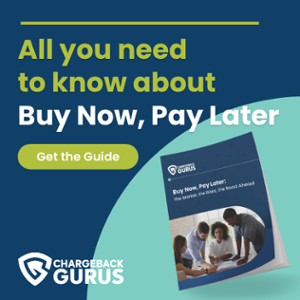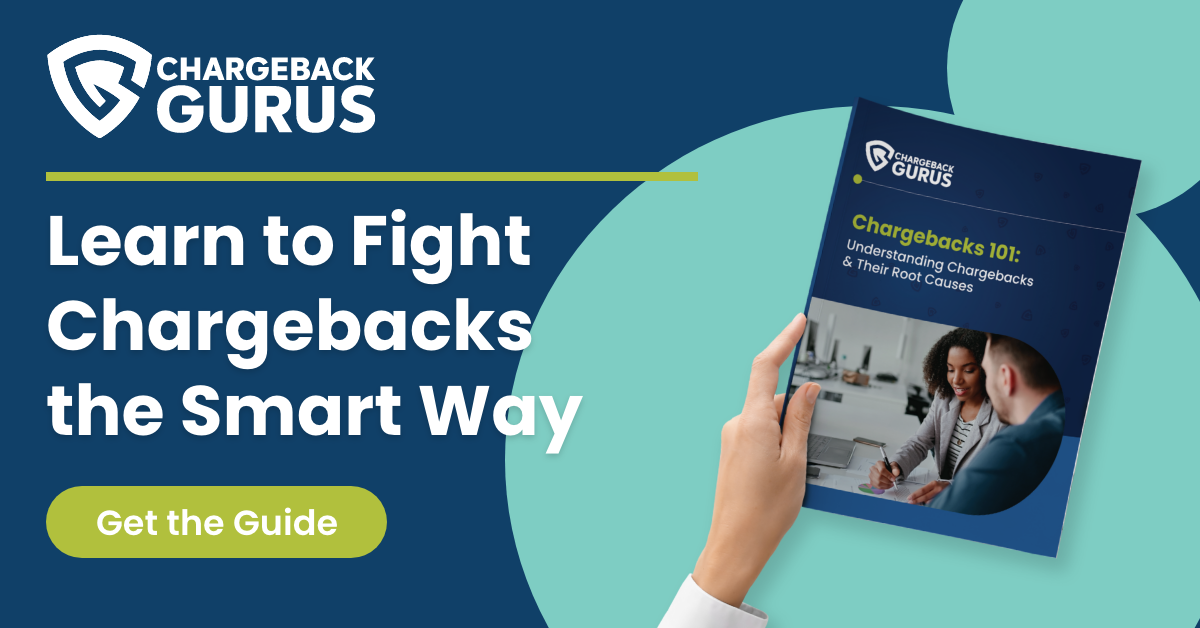How to Succeed at Chargeback Recovery

When you get a chargeback because you got hit by fraud or made a legitimate mistake, all you can do is learn from it and avoid similar chargebacks in the future. It’s a different story when chargebacks are based on false or erroneous claims. In these cases, the chargebacks can be recovered—but only if you can present a compelling rebuttal with the right evidence to back you up.
When you know when and how to fight invalid disputes, you can recover your revenue and deter so-called “friendly fraudsters” from abusing the chargeback process. What are the best ways for merchants to engage in chargeback recovery?
 The chargeback process is meant to give consumers confidence in the credit card payment system by giving them recourse when they are defrauded by merchants, have their cards stolen and used without their authorization, or are billed in error.
The chargeback process is meant to give consumers confidence in the credit card payment system by giving them recourse when they are defrauded by merchants, have their cards stolen and used without their authorization, or are billed in error.
Unfortunately, some cardholders do not use the chargeback process as intended. They might dispute a charge for one of the following reasons:
- It’s a legitimate charge but they forgot that they made it, or failed to recognize the merchant name on their billing statement.
- The charge was made by a child or other family member who was given access to the payment card but used it without the cardholder’s permission.
- They’re deliberately trying to “cyber-shoplift” by disputing the charge under false pretenses.
- They have a subjective complaint about a purchase and instead of working it out with the merchant, they’d rather try to talk their bank into giving them a chargeback.
All of these chargebacks could be filed under the category of “friendly fraud,” although they don’t always require fraudulent intent. According to some studies, friendly fraud can account for more than two-thirds of all chargebacks. Fortunately, merchants have recourse of their own when they receive friendly fraud chargebacks.
What Is Chargeback Recovery?
Chargeback recovery is the process of fighting back against friendly fraud chargebacks and recovering the revenue that would otherwise have been lost. Merchants can do this by engaging in chargeback representment, which involves submitting a second presentment of the transaction along with a letter or statement of rebuttal and documented evidence that proves your claims.
When you represent a chargeback, the issuing bank that approved their customer’s initial chargeback will review your evidence and take a closer look at the case. If they determine that your argument is correct as demonstrated by the evidence, they will reverse the chargeback and return the disputed funds to your account.
What Types of Chargebacks Can Be Recovered Through Representment?
When you receive a chargeback, the first thing to do is to look up the reason code. Every credit card network maintains a list of short alphanumeric codes that identify each valid chargeback reason and the conditions that must be met for them to be granted. Once you’ve identified the reason for the chargeback, you can investigate the transaction to determine whether or not the chargeback is legitimate.
If the cardholder is telling the truth and has made a valid dispute claim, you’ll have to accept the chargeback.
Merchants who accept all chargebacks by default will soon find themselves losing significant revenue and battling a dangerously high chargeback rate. What you’ll find when you investigate your chargebacks is that many of them are actually friendly fraud, but you can only successfully fight them when the facts are on your side and you have the documents to prove it.
What Makes Chargeback Representment Successful?
Just as chargeback reason codes explain the valid conditions for every type of chargeback, they also frequently specify the type of evidence merchants are required to submit in order to contest them through the representment process. Depending on the chargeback, the required evidence might consist of transaction receipts, particular authorization response codes, proof of delivery, correspondence with the customer, or any number of other specific documents.
Chargeback representment succeeds when you can present your rebuttal concisely and substantiate it with evidence that meets the specified requirements. Issuing bank representatives aren’t going to spend a long time deliberating over the merits of the case, they’re going to be looking for straightforward evidence that clearly matches the requirements.

It’s also important to follow the chargeback representment procedures carefully, particularly with respect to timing. Your acquirer only has a limited timeframe in which to respond to a chargeback, so if you’re going to engage in representment, you need to gather and submit your evidence before the deadline.
Learn how to submit chargeback representments with your acquirer or payment processor ahead of time so you can be ready to move quickly when you encounter friendly fraud.
When Should Merchants Use Chargeback Recovery Services?
Chargeback recovery can be a laborious process. It takes time to look up reason codes, research transactions, gather evidence from multiple sources, write a rebuttal statement, and submit your representment. Dealing with a high volume of friendly fraud chargebacks can be overwhelming, especially for smaller merchants.
Nevertheless, you can’t just write chargebacks off as an unavoidable cost of doing business. Fees and overhead can cause each chargeback to cost you more than double the amount of the original transaction, and when customers get away with intentional acts of friendly fraud, it only encourages them to keep doing it.
When you don’t have the time or resources to fight friendly fraud chargebacks on your own, that’s when it can make good sense for your bottom line to call in the experts.
Good chargeback management firms can handle every aspect of the representment process and help you create a chargeback defense strategy that can proactively reduce instances of friendly fraud.
Conclusion
Chargeback recovery is one of the most important elements of chargeback management. Given the high cost of chargebacks, no merchant can afford to accept chargebacks based on falsehoods or errors when it’s possible to win back your funds simply by defending yourself with the truth. Whether you’re fighting back on your own or enlisting the help of seasoned experts in chargeback representment, it’s always worth making the effort to exercise your rights as a merchant and protect your revenue.
Thanks for following the Chargeback Gurus blog. Feel free to submit topic suggestions, questions, or requests for advice to: win@chargebackgurus.com



